Wenjing Huang is a psychometrician at the RAND Corporation. She specializes in developing standardized assessment tools for measuring mental health, substance use, skills, knowledge and aptitudes related issues in health, education, and workplace settings. Huang's work at RAND covers a diverse range from health research funded by the National Institute of Health (NIH) to Worker Well-Being funded by Centers for Disease Control and Prevention (CDC NIOSH). More recently, Huang worked on creating standard measures for evaluating national and international policies in the COVID-19 pandemic for the Department of Health and Human Services (HHS). Huang co-led a high-profile report on Asia Drug Policy and also works in mental health issues of youth in the Middle East experiencing war trauma and civil unrest. Before joining RAND, Huang interned at the World Health Organization (WHO). She started her quantitative psychology training with Patrick Curran in the Ph.D. program at L.L. Thurstone Psychometric Laboratory (UNC, Chapel Hill). She received her Ph.D. at UCLA working with Peter Bentler on estimation algorithms for Structural Equation Modeling (SEM).

Chadwick Campbell, PhD, MPH - UC San Diego
Chadwick is an Assistant Professor in the Herbert Wertheim School of Public Health and Human Longevity at the University of California San Diego. For more than 18 years, Chadwick has worked in HIV prevention programs and on research studies focused primarily on gay and bisexual men of color. In his work, he primarily employ qualitative methods to: (1) highlight the social meanings of a stigmatized illness; (2) examine how those meanings are constituted within specific social, structural, and geographic inequities; (3) consider the impacts of these inequities at the intersections of race, gender, class, and sexuality; and (4) explore how each of these shape health outcomes and overall well being.
Chadwick's recent research focused on the experiences of HIV status disclosure, stigma processes, and the broader lived experiences of Black gay and bisexual men living with HIV in the Deep South. His scholarship has been published in Social Science and Medicine, Archives of Sexual Behavior, AIDS and Behavior, Culture Health and Sexuality, JAIDS, and Sociology of Health and Illness, among others.
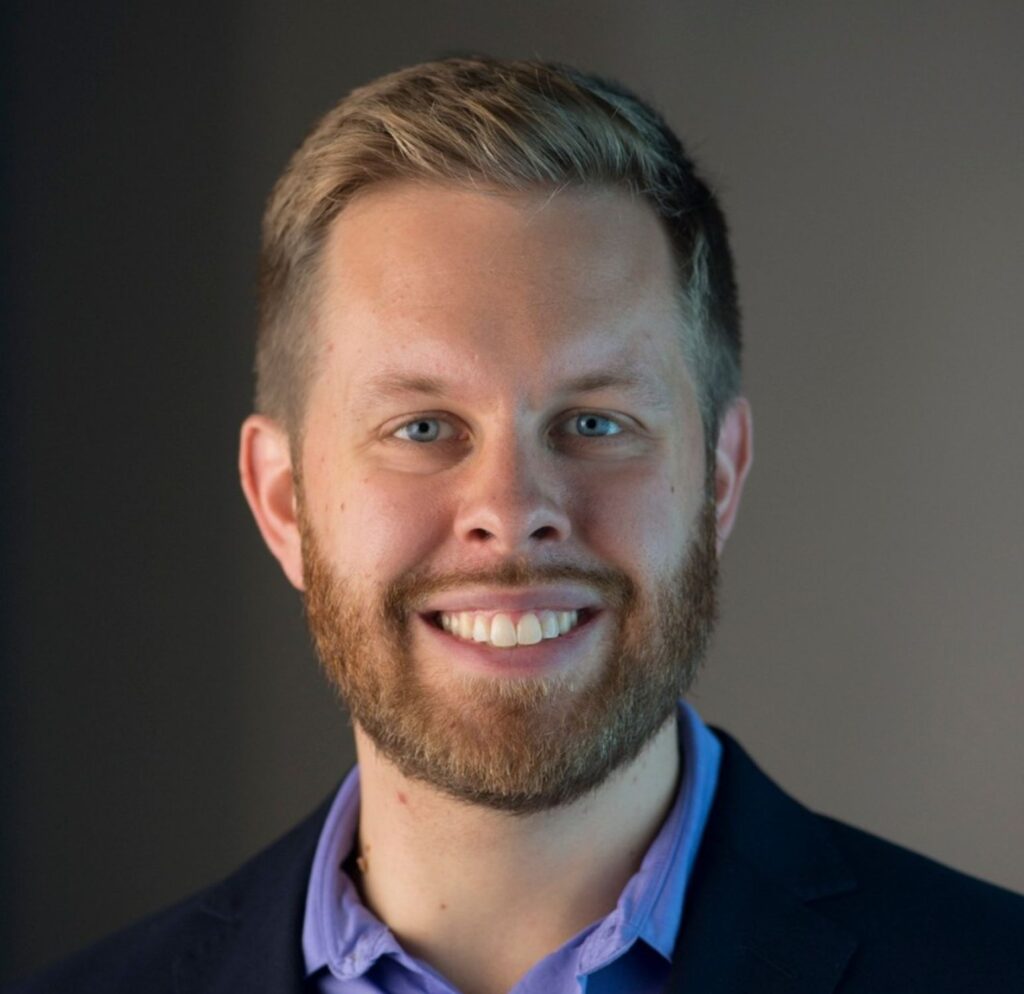
Alex Dopp, PhD - RAND Corporation
Alex Dopp (he/him) is a behavioral and social scientist at RAND and a professor of policy analysis at Pardee RAND Graduate School. Also an implementation scientist and child clinical psychologist, he studies the use of research evidence, and related policy implications, for improving youth mental health and substance use services. His rare dual expertise in behavioral health services and economic evaluation has allowed him to conduct research on "upstream" influences (financing strategies) and "downstream" outcomes (economic impact) of the implementation of evidence-based youth behavioral health treatments. Dopp is interested in reaching vulnerable populations who are underserved by traditional behavioral health systems, like via telehealth, and by partnering with other systems like juvenile justice, child welfare, Children's Advocacy Centers, primary care, and schools. His research involves collaboration with a variety of health policy, services, economics, and outcomes researchers, as well as patients and community stakeholders, within an interdisciplinary team science approach. Dopp received his Ph.D. in child clinical psychology from the University of Missouri.
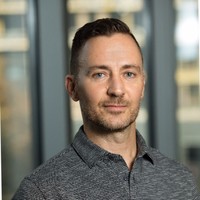
Keith Horvath, PhD - San Diego State University
Keith's research program's key focus is to develop best practices for delivering primary and secondary health interventions, particularly in the area of HIV treatment and prevention.
Keith currently leads a number of NIH-funded studies, including studies of peer-support interventions to improve medication adherence among youth and adult persons living with HIV and PrEP uptake among HIV-negative transgender and non-binary youth. He also leads studies to examine different PrEP dosing options for sexual minority young adults. In addition to his research activities, Keith instructs an undergraduate course in human sexuality and a PhD-level course in grant writing and behavioral medicine interventions.

Wenjing Huang, PhD Psychometrician - RAND Corporation
 Susan Kegeles, PhD - UC San Francisco
Susan Kegeles, PhD - UC San Francisco
Susan M. Kegeles, PhD is Professor of Medicine at the UCSF School of Medicine, in the Division of Prevention Science, and Co-Director of the Center for Prevention Studies (CAPS). She has an established research career conducting community-based research and has considerable experience designing and implementing HIV prevention interventions for diverse groups, including young and all-aged MSM, transgender women, and injection drug users. The majority of her research focuses on MSM, particularly young MSM, and young Black and Latino MSM.
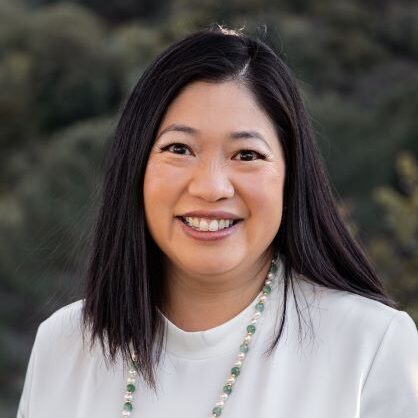
Kimberly Ling Murtaugh, PhD - UCLA
Kimberly Ling Murtaugh is a lecturer in Public Policy at the UCLA Luskin School of Public Affairs. She received her Ph.D. and M.Sc. from Carnegie Mellon University in organizational behavior and theory with a special focus on behavioral economics, judgment and decision-making, and her B.A. at the University of Pennsylvania, majoring in the biological basis of behavior with minors in psychology and Spanish. She also completed a postdoctoral fellowship in the Department of Family Medicine at UCLA, Center for Behavioral and Addiction Medicine.
Dr. Ling Murtaugh’s current research focuses on the use of behavioral economic principles to evoke health behavior change in addiction medicine.
Ruby Lucas, MPH - University of Washington
Ruby Lucas (they/them) is a second-year PhD student in Epidemiology at the University of Washington. Ruby received their MPH in Epidemiology at the University of Washington (2022) and BA in Public Health from the University of California, Berkeley (2019). Their interests include mixed-methods and community-engaged research to examine psychosocial and environmental factors that influence the health and well-being of transgender, nonbinary, and gender expansive (trans) youth and adults, including the intersections gender affirmation, mental health, and sexual and reproductive health care access and outcomes.
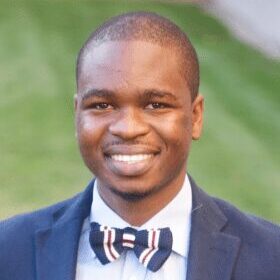
Adedotun Ogunbajo, PhD, MPH - RAND Corporation
Adedotun Ogunbajo holds a PhD in behavioral and social health sciences from Brown University, and a MPH in social and behavioral sciences from Yale University. His dissertation explored how psychosocial health outcomes and substance use influences sexual risk taking among gay and bisexual men in Nigeria. As a Yerby Fellow, he is continuing to broadly focus on the intersection of structural barriers and sexual health outcomes among racial and sexual minority communities both in the United States and various Sub-Saharan African countries.
Chloé Ópalo - Los Angeles LGBT Center
Chloé Ópalo has developed a career grounded in community-engaged research. For nearly 10 years Ms. Ópalo has been working within community organizations to support the health and wellbeing of LGBTQ+ clients. As a bilingual, Mexican/Latina woman of trans experience and a first-generation immigrant who grew up in poverty in the U.S., Ms. Ópalo has been an advocate for and facilitator to PrEP for many transgender and non-binary persons. Ms. Ópalo is currently serving in the role of Supervisor of Community-Engaged Research at the Los Angeles LGBT Center and as PrEP coordinator for the PrEP Well Project.
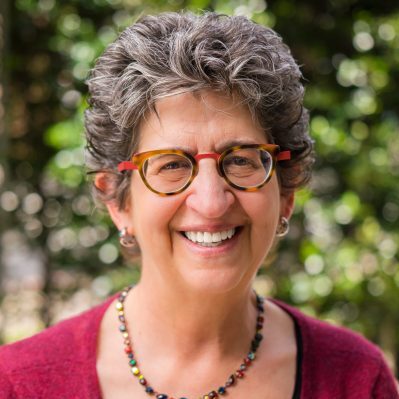
Cathy J. Rebak, PhD - Friends Research Institute UCLA
Cathy J. Reback, PhD, is a Senior Research Scientist with Friends Research Institute and the Director of the Combination Prevention Core for the UCLA Center for HIV Identification, Prevention and Treatment Services. Dr. Reback is the Founder and Executive Director of Friends Community Center, which provides substance use and HIV prevention services for sexual and gender minority individuals.
Dr. Reback’s research is an examination of the intersection of substance use disorders and HIV risk behaviors among sexual and gender minority individuals. Dr. Reback has an extensive background in conducting community-research collaborations, managing HIV prevention programs, designing and implementing technology-based health interventions, evaluating treatment therapies for populations with substance use and mental health disorders, and conducting mixed methods research studies. She has collaborated with local community-based organizations to adopt evidenced-based interventions into public health and community settings. Dr. Reback’s community and policy work includes current and past membership on numerous local and national HIV/AIDS and substance use task forces and advisory committees.
Ayden Scheim, PhD - Drexel University
Ayden Scheim is an Assistant Professor in the Department of Epidemiology and Biostatistics at the Drexel University Dornsife School of Public Health in Philadelphia. He is also a Visiting Professor in the Center for AIDS Prevention Studies at the University of California — San Francisco, Affiliate Scientist in the Centre on Drug Policy Evaluation at St. Michael’s Hospital in Toronto, and Adjunct Assistant Professor in Epidemiology and Biostatistics at Western University in London, Canada. He works with populations confronting stigma and oppression to understand and address the health impacts of inequitable social, policy, and healthcare environments. In particular, he conducts community-engaged and community-led research with trans people and people who use drugs in India, Canada, and the United States. He also has a program of methodological research focused on measuring intersectional social positions and experiences of discrimination.
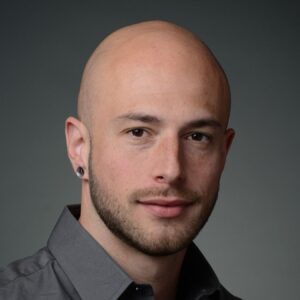
Dan Siconolfi, PhD, MPH - RAND Corporation
Daniel Siconolfi (he/him) is a behavioral scientist at the RAND Corporation. His research portfolio addresses health disparities, healthy aging, and access to home and community-based services with focal populations including sexual and gender minority persons, older adults, persons living with or affected by HIV, and persons with dementia. His recent projects and collaborations include the evaluations of a task-shifting mental health intervention in community settings and mental health first aid training, research assessing disparities in Medicaid home and community-based services, barriers and facilitators to informal and formal advance care planning, and research focused on behavioral health among adolescents and emerging adults. Prior to joining RAND, he was a T32 postdoctoral scholar at the University of Pittsburgh Graduate School of Public Health. He received his Ph.D. from Johns Hopkins University.

Scott Tebbetts, PhD - UC San Francisco
Scott completed undergraduate work at the University of Colorado, Boulder and obtained a graduate certificate in Health Policy and Management from the University of Southern Maine. He has been involved in HIV prevention for 17 years.

Wilson Vincent, PhD, MPH - Temple University
Dr. Vincent is the director of the Health Disparities and Prevention Science (HDPS) Lab. His research program merges clinical and community psychology, health psychology, and public health. Focusing on vulnerable populations, he investigates the impact of social determinants of health, such as stigma and poverty, on mental and physical health outcomes, including health behaviors. Dr. Vincent strives toward a strengths-based approach. He is interested in multilevel conceptualizations of the individual in context while considering intersectional identities. As part of a multilevel approach, broadly defined, Dr. Vincent also investigates intraindividual, biological substrates of stigma and other social determinants of health. Dr. Vincent uses both quantitative and qualitative data-analytic methods in his work.
When he is not working, he enjoys sketching, reading, going to the gym, singing baritone, and traveling when possible.

Glen Wagner, PhD, MA - RAND Corporation
Glenn Wagner is a senior behavioral scientist at RAND and a professor at the Pardee RAND Graduate School. He has been involved in clinical and behavioral HIV research for more than 25 years and has extensive experience with both HIV prevention and treatment research. For more than 15 years, he has conducted National Institutes of Health–funded research in the United States on HIV antiretroviral adherence, including methodological studies of adherence measurement and randomized, controlled studies of adherence interventions. Wagner has led a group of RAND scientists in developing international HIV research in sub-Saharan Africa, Latin America, and the Middle East.

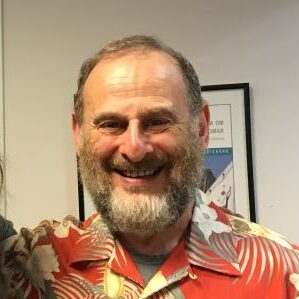
 Arjee Restar
Arjee Restar